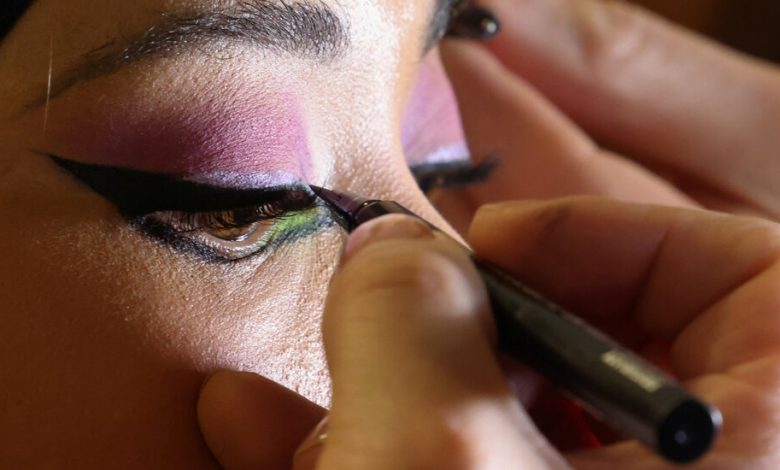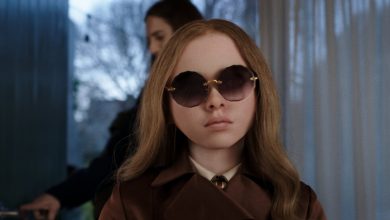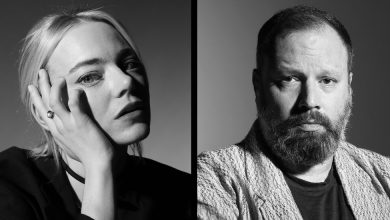A Beauty Brand That Turns Self-Improvement Into a Nightmare

NATURAL BEAUTY, by Ling Ling Huang
At certain points in my 20s, it might’ve been hard for a person to distinguish my annual spending at Sephora from the G.D.P. of a very small country. The pursuit of improvement was more than skin-deep: Every shopping trip offered the possibility that I would find the product that would change everything, not only my visage but my very nature. Money may not buy happiness, but it can secure confidence, which is close enough.
Ling Ling Huang understands this neurosis, and in “Natural Beauty,” she plumps it up into its most profane. When we meet our unnamed protagonist, she’s a piano-playing child prodigy whisked away from her Chinese immigrant parents to live, perform and suffer at a restrictive, racist music conservatory. The narrator soon becomes, as many people of color do, a mascot for the school, paraded around at events and fund-raisers as she is bullied and excluded by her peers. When she asks the only man she sleeps with more than once if he might have feelings for her, he only stammers something about how talented she is.
After one of her performances, her parents get into a terrible accident, and the narrator leaves piano playing behind, convinced her hobby and selfishness are to blame. In need of a well-paying job to support them, she ends up at Holistik, a beauty company that straddles the cutting edge of technology, situated right between innovation and danger. Holistik, in its pursuit and commodification of perfection, tracks its employees for optimization: “What starts as an enthusiasm for improvement becomes an all-consuming infatuation. Caution becomes paranoia and, eventually, fear. Is there anything more comforting in life than knowing what to fear? At Holistik, they teach me what I need to be afraid of to become beautiful.”
As our narrator ascends within the company, Holistik’s technologies get more invasive and clandestine, as if they were squeezing their employees to get the last speck of product out of the tube. She begins to resemble all of her co-workers, who are an approximation of white beauty standards, and develops a friendship with the niece of the company’s owner. She is encouraged to change her name to “Anna” to make it easier on customers whose tongues can’t curl into ethnic sounds. “Anna” uses her financial power, then Holistik’s products, to help her parents as much as she can, despite her guilt both over who they are and what they’ve become.
In cosmetic terms, Huang’s plot needs some light blotting: The novel’s turn into horror feels inevitable and yet still jarring, like a D.J. spinning away from a song right as you were getting into a groove. Her talents (Huang is a classically trained violinist, and “Natural Beauty” is her debut novel) harmonize most seamlessly when she writes about music, managing the near-impossible feat of crafting descriptions of the compositions that are as airy and adroit as the melodies themselves. And she is at her best when she skewers the narcissistic, corrosive version of self-care that can be mistaken for empowerment. When Audre Lorde said, “Caring for myself is not self-indulgence, it is self-preservation, and that is an act of political warfare,” she was not referring to a Botox drive-through.
Yet in the world of Holistik, power, satisfaction and value are best obtained by pubic hair transplants, procedures to maintain a tooth gap, diamond freckling and an arcane, elevated religion called “Dianaism” (which encourages people to be more like Princess Diana) — all seen as undeniable improvements to the self, disregarding the restless, sweaty panic that informs each appointment or idea.
The novel is a meditation on vanity, the ways in which the pursuit of physical beauty can betray the other sources of beauty in one’s life, and how horror can lurk beneath the surface of even the most poreless skin. Huang asks: What — or who — are we willing to sacrifice in order to become beautiful, and what happens if it all gets stripped away? As the proverb goes: “Charm is deceptive, and beauty is fleeting.” But where does it go?
Jazmine Hughes is a staff writer for The Times Magazine.
NATURAL BEAUTY | By Ling Ling Huang | 257 pp. | Dutton | $27




